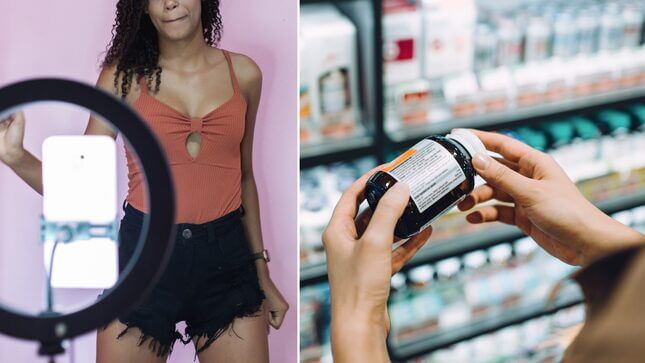After Banning Weight Loss Ads, TikTok Took Millions from Brand Claiming You Can Lose 90 Lbs in 2 Weeks
The laxative drink and "nutrition plan" ads, which targeted young women and girls, copied the format of other viral health misinformation content on TikTok.
In Depth

TikTok reportedly took $4.3 million from a brand shilling weight loss products—including one laxative drink that it claimed could help you lose 90 pounds in two weeks—between last November and the first week of January, a bombshell report from Media Matters for America revealed earlier this month. On Monday, Insider confirmed that TikTok has since either removed or limited who can see some of the company’s ads.
Notably, at least on paper, TikTok takes a more progressive approach to weight loss and eating disorder-promoting content than other social platforms in its community guidelines, explicitly banning weight loss products since 2020. Through these policies, TikTok’s stated goal is to “safeguard our community from harmful content and behavior while supporting an inclusive—and body-positive—environment.”
Instead, Media Matters’ senior researcher Olivia Little found the company received over $4 million in two months from Kilo Group, and specifically, its brands ColonBroom—the aforementioned laxative drink—and Beyond Body, which sells wildly unrealistic “nutrition plans” aimed at weight loss. Many of ColonBroom and Beyond Body’s sponsored ad content features young, thin women lavishing praise upon their products, collectively garnering around 415 million views on their videos. ColonBroom and Beyond Body’s individual TikTok accounts have fewer than 3,000 followers, but with hundreds of thousands of views on some of their videos which Insider notes “are difficult to explain without paid promotion.”
-

-

-

-

-

-

-

-

-

-

-

-

-

-

-

-

-

-

-

-

-

-

-

-

-

-

-

-

-

-

-

-

-

-

-

-

-

-

-

-








































